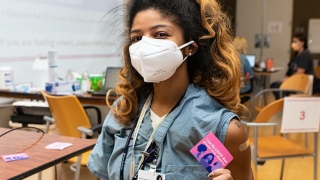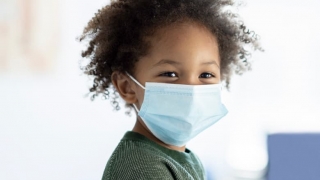Navigating COVID-19
Suspect COVID-19?
Please refer to this helpful information about COVID-19 symptoms and what to do if your child is exposed to COVID-19.
COVID-19 Vaccines
We recommend all eligible children 6 months+ receive their full COVID-19 vaccination series, including recommended boosters as indicated. More about CHOP's vaccine program.
Know Before You Go
Masking is no longer required, but strongly encouraged in certain situations. Please review our current visitor and masking guidelines. What to expect when you visit.
Moving Forward
CHOP experts weigh in on how families can best transition to living with COVID-19:
Why I'm Vaccinating My Child: A Conversation with Drs. Handy & Franco »
COVID-19 Care
Symptoms to watch for, what to do if your child gets sick, and tips to keep your family healthy.
COVID-19 Testing
My Child Tested Positive: Now What?
If your child has tested positive for COVID-19, here are the top five things to know.
COVID-19 Vaccines
Find more information about COVID-19 vaccines and answers to common questions.
Coping with COVID-19
The pandemic put a lasting strain on the mental health of children and adults everywhere. You’re not alone. Use these resources for support.
Security Reminder
CHOP will never ask for sensitive information such as passwords or social security numbers outside of MyCHOP, our patient portal. If you receive a call, text, email or social media message asking for sensitive information, do not respond. If you have questions, call your CHOP provider using a phone number you know is legitimate, or contact us through MyCHOP.


